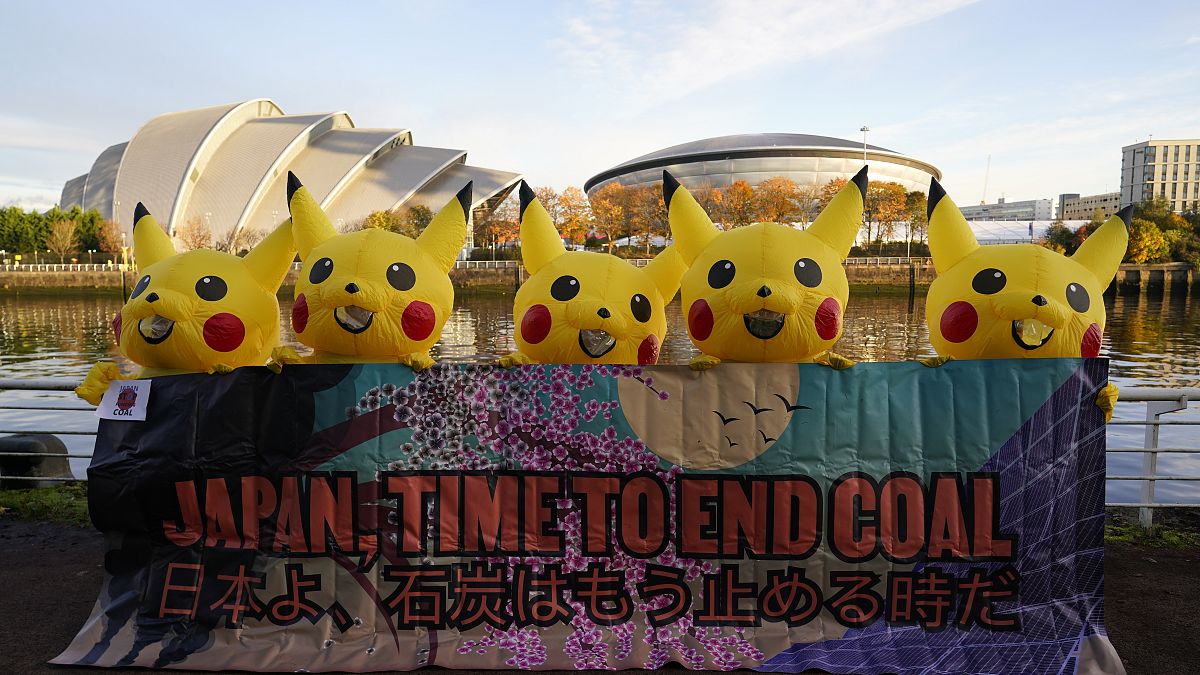More than 40 countries have committed to phasing out coal use - but critics say this isn't enough.
On the fourth day of COP26, more than 40 countries have made a major commitment to end coal use.
Several major coal-using nations have pledged for the first time to phase out their use of the heavily-polluting fossil fuel or to speed up existing plans to do so, while others announced commitments to end investment in new coal-fired power plants.
UK business secretary Kwasi Kwarteng said late Wednesday that the commitments made on the sidelines of the UN climate summit in Glasgow, Scotland, meant the “end of coal is in sight.”
But critics noted the several major economies still have not set a date for ending their dependence on the fuel that is a major source of planet-warming emissions.
The British government said pledges of new or earlier deadlines for ending coal use came from countries including Poland, Ukraine, Vietnam and Chile.
While Kwarteng called the agreements a “milestone moment in our global efforts to tackle climate change," his counterpart in the opposition Labour Party’s said there were “glaring gaps” such as the lack of commitment from large emitters to stop increasing coal domestically.
Labour's business spokesman Ed Miliband also noted that there were no new commitments on phasing out of oil and gas, the other major fossil fuels, he said.
Notable omissions when it comes to curbing emissions
Existing targets for curbing global warming require countries to stop burning coal, but many major economies including the United States, China, India and Japan have set no formal dates for ending its use.
Still, experts said the announcement and others made so far at the summit showed the growing momentum to ditch coal.
“Today’s commitments will help to shift whole continents on their journey to phase out coal," says Dave Jones of the energy think tank Ember.
Poland is the second-biggest user of coal in Europe after Germany, which is set to phase it out as early as 2030. While the Polish government had previously agreed to end coal use by 2049, the new pledge would bring this deadline forward by at least a decade.
Ukraine, the third-biggest coal consumer in Europe, is also bringing forward its coal deadline, from 2050 to 2035.
“The progress on coal being shown at COP26 demonstrates that the conditions are ripe for a global coal exit,” said Leo Roberts, a senior researcher at the environmental think tank E3G.
“We now need to see the incoming massive scale-up in clean energy finance made available quickly to ensure all countries can confidently move from coal to clean,” he added.
A start, but nowhere near enough
But some environmental activists said the commitments didn't go far enough.
“This statement is a start, but we urgently need more countries on board," says Robin Mace-Snaith, Policy Lead for Climate and Energy, at CAFOD.
"Public finance shouldn’t be anywhere near fossil fuels if we want any chance of keeping within 1.5°C. We challenge all signatories to ensure that the limited and clearly defined circumstances they reference are not just loopholes to continue supporting the fossil fuel sector.
"What’s needed is a just energy transition, bringing electricity to the over 750 million people without and ensuring no community is left behind as a result. For many communities on the frontline of climate change, time has already run out, we must consign all fossil fuels to history now.”
Others have noted that while coal has been a significant contributor to global emissions, it's an industry already in retreat - while other fossil fuels continue to grow.
“Emissions from oil and gas already far outstrip coal and are booming, while coal is already entering a terminal decline,” says Murray Worthy of the campaign group Global Witness. "This is a small step forwards when what was needed was a giant leap.”
The agreements on coal are not part of the formal negotiations at the UN talks in Glasgow. But British Prime Minister Boris Johnson, whose country is hosting the conference, had said he wanted to see deals on coal, cars, trees and cash.



